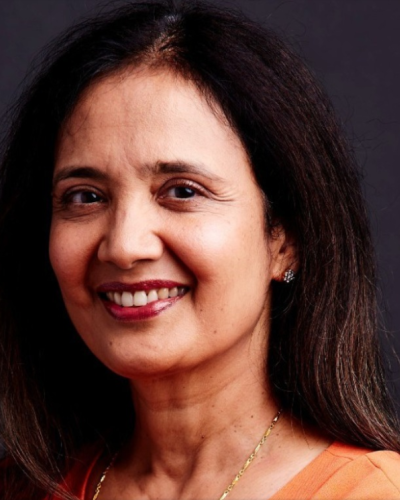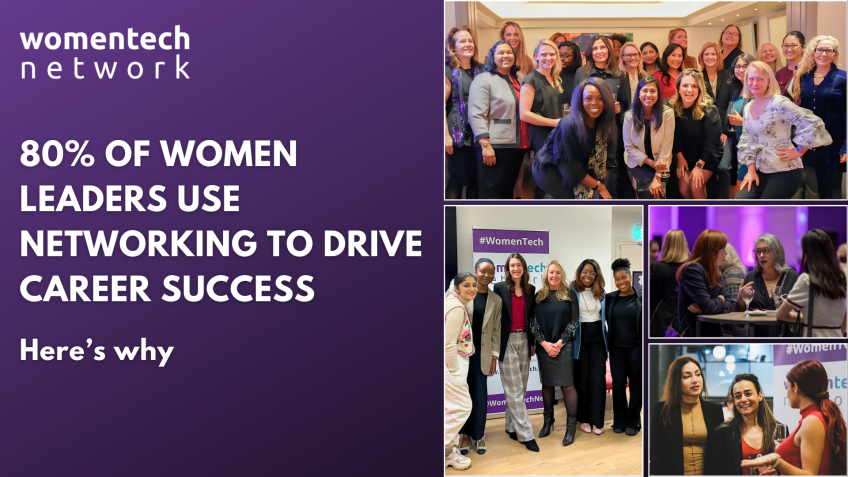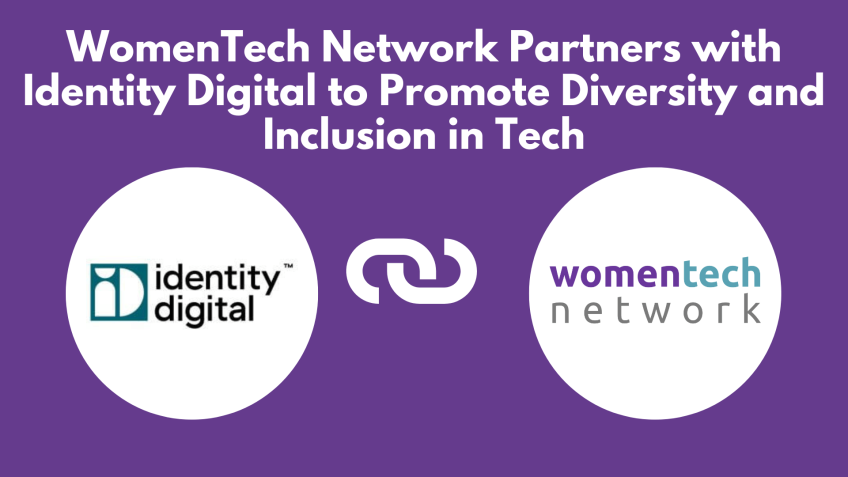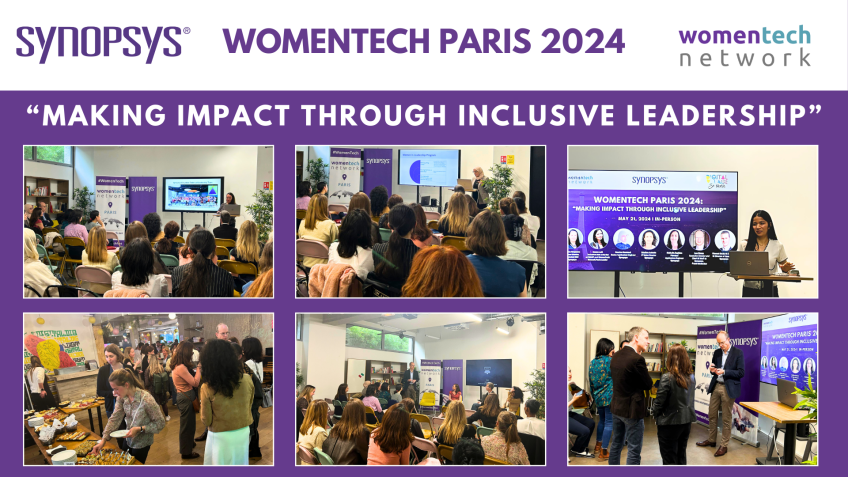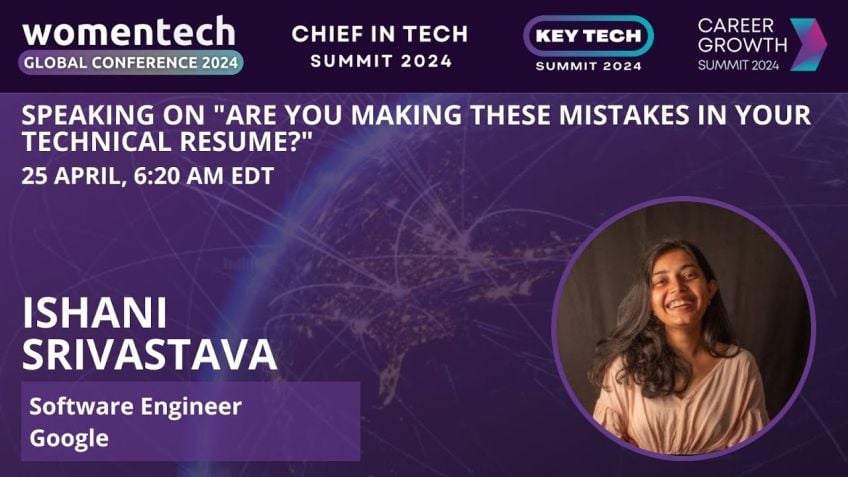Breaking Down Workplace Barriers for Female Immigrants in Tech
Krithika Bhat
Chief Information OfficerBreaking Down Workplace Barriers for Female Immigrants in Tech
Hello everyone! Welcome to our enlightening discourse on breaking down workplace barriers for females immigrants in the tech industry. Our spotlight is on Kritika Bhat, the Chief Information Officer at Pure Storage, as she shares insights from her journey as an immigrant woman succeeding in the tech sphere.
About Kritika Bhat
Born in Bangalore, India, Bhat began her career in Mechanical Engineering but swiftly transitioned to the software industry after a campus interview opportunity with Tata Consultancy Services (TCS). This decision marked the first major turning point in her career, setting her on a path that would lead to several prominent roles in tech across the globe.
Finding Success as a Female Immigrant in Tech
Embrace Opportunities and Leverage Your Skills
Kritika emphasizes the importance of embracing opportunities when they arise. This mindset allowed her to take a leap of faith into the tech industry, traveling to Switzerland and Australia for international assignments. Not only did this broaden her technical and professional skills, but it also equipped her with invaluable international experience, working with diverse teams across different cultures.
Mastering the Art of Networking
When Kritika immigrated to Canada, she realized the power of networking to mitigate professional isolation, especially as an immigrant. She counsels immigrants on the importance of building both personal and professional support networks. In her experience, professional networks were vital in landing her next role at System House Limited, Canada, enhancing her skills further in the tech industry.
Embracing Adaptability and Authenticity
The key to thriving in a new work culture, according to Kritika, lies in understanding and adapting to cultural differences without losing one’s authenticity. For instance, acknowledging communication styles, authority approaches, and other social nuances that could impact work can foster harmonious work relationships.
Tackling Fears and Growing Confidence
In her journey, Kritika also advises embracing opportunities that challenge your fears, as this can build personal confidence and resilience. For example, her fear of public speaking was overcome by continually accepting speaking engagements. This bolstered her confidence in her communication skills, further advancing her career growth.
Reflections and Lessons for Success
Reflecting on her career, Kritika shares some pivotal considerations for other women immigrants navigating the tech industry:
- Establish a Support Network: Building a strong personal and professional support network helps keep you grounded, providing emotional and practical help when needed.
- Join Professional Organizations: Professional networks and women’s organizations offer career development opportunities such as mentoring, training, and connection opportunities.
- Embody Adaptability and Authenticity: While it’s important to adapt to the cultural norms of your workplace, maintain your originality and authenticity. Let them be aspects of your unique value as a professional.
- Be Your Own Advocate: Kritika ends her session with a powerful message. Don’t allow others set boundaries for your potential. Instead, reinforce your expertise, skills, and aspirations, becoming your own brand ambassador.
In conclusion, Kritika Bhat’s journey serves as a beacon for many other women immigrants in tech, demonstrating that barriers can indeed be broken, and success is attainable. With resilience, adaptability, effective networking and strategic personal branding, your career journey can be a fulfilling adventure.
Video Transcription
And welcome to this session which is breaking down workplace barriers for female immigrants in tech. My name is Kritika Bhat and I am the Chief Information Officer at Pure Storage.Pure Storage is headquartered in Mountain View in the San Francisco Bay area and is a leading provider of data storage solutions. Um I am a woman immigrant in tech and over the course of the next 20 minutes, I'm going to share with you uh my career um as a female immigrant. And I also hope to share some lessons that I've learned over the course of my career. And I, I do have to point out that the lessons learned are very relevant to female immigrants in tech, but frankly, they're relevant to all women in tech and probably everybody in tech. So my journey began in Bangalore India. I was born in um the Sig Silicon Valley of India and did my schooling in Mumbai. I graduated with a degree in mechanical engineering and in my final semester uh when I was having campus interviews, I was basically interviewing in my core field when Tata consultancy services came along for campus interviews.
Now, Tata consultancy services even back then was a uh global provider of um systems and solutions. And I interviewed with them and was offered a position. And this was, I think the first inflection point in my um career, I had a decision to make. Do I stick with my core field of mechanical engineering or do I switch to the software industry? And it was an easy decision for me. I felt I was very early in my career. So this did not feel like a risk, it felt like an opportunity. And furthermore, I had done a programming course in engineering school and I'd really enjoyed it. So I decided to take up the offer and clearly, it was the right decision for me because here I am decades later now at T CS, they had a very good intensive 2 to 3 month boot camp where they gave us all the foundation um and the technical skills we needed. And then we were assigned projects both for customers and some in house projects. And these projects span the entire software lifecycle methodology. And in those years, I was a lot more focused on the development and the support aspect. Now, I was lucky enough during my tenure at T CS um to participate in two customer projects which were overseas. Now, I have to remind you that unlike today, where everybody's traveling almost as soon as they are born, um you know, decades ago, people didn't travel as much.
So my first um foray into a foreign country was my first assignment with a customer in Switzerland. I was there for three months and subsequently, I also did a one year project for a large global multinational in Sydney, Australia. And little did I know then. But this international experience was really very beneficial because over the course of my career, I would go on to work with folks in multiple countries and also to lead people in many, many countries. So this international experience working with people from different countries, cultures who looked and spoke differently was invaluable. So I have, you know, very good turn with tcs. And then I had some personal milestones. I moved to Toronto Canada and got married. And at that stage I found myself at a very interesting point in my life, I'd had a good run with T CS. But now I was in a country where I didn't know anybody. I had my husband, great set of friends um that my husband had, that became my friends, but I was a little isolated socially and professionally. Now, the social aspect was very easy to sort out. I had a lot of friends from engineering school who were in the US, either on work assignments or further studies. So I quickly reconnected with them and then had my um personal support network. But professionally, I was very isolated because I didn't know anybody.
And I had a period of seven months when I had to wait for my work papers. And during this time, I realized that I really needed to put myself out there professionally, get my resume out there and network. And I was a little shy and networking did not come naturally to me. But I realized that if I needed to continue my career in Canada, I needed to do that. So I put myself out there, I started meeting up with recruiters and very quickly, I was able to figure out which recruiters I wanted to work with and which ones weren't as invested in me. So I narrowed down the list of recruiters I was comfortable with. And um I remember an early tip that one of the really good recruiters gave me. I'd had a one hour conversation with him to introduce myself. It was a good conversation. And at the end of the conversation, he said, Critica, you have such rich experience, but you spent a lot of the one hour telling me everything you haven't done. And you don't know how about focusing on what you do, know what expertise and skills you do bring and don't try to red erase red flags when there are none. And that advice has stayed with me right through on making sure that you know how to position yourself.
This is not about embellishing skills, but positioning your skills appropriately. So great advice there. And I think the networking really paid off because um seven months later when I had my work papers within a week or two, I had a position with System House Limited Canada.
This was also a consulting company which um was in the solutions and services space. And with System House, I built on that foundation that I had gained at T CS. I continue to work on new technologies and frankly having this background in consulting was very useful because as a consultant, you have to be the expert with the at the customer site. So I learned to ramp up on new technologies very quickly. And with system house, I was also expanding my skills in the software life cycle, doing a lot more design and analysis. Also learned new areas like imaging, new technologies like oracle. So really building on those uh on those skills. Now I continue to have personal milestones.
Uh My husband and I had our first child and when he was a year old, we made a decision to migrate to the US. We had a lot of family in the San Francisco Bay area and we wanted our child to grow up with family and my husband and I were both in soft van. We said professionally, this is the place to be. So for the second time in my life, I found myself uprooted to a new country. But this time I was much better prepared because I had learned a lot of lessons when I first moved to Canada. So very quickly I did that professional networking. The, the social support structure was not a problem at a huge in a friend circle already in the Bay area. But I reached out to recruiters. This time, I knew how to pick the ones that are going to work for me. Made a short list of companies. I wanted to work for five weeks of hectic interviewing and I accepted a position with Oracle Usa in their applications it organization. Now, this was a conscious decision to move from consulting to it. There's a couple of reasons for it. One, I was a mother now and I no longer wanted to travel as much as I had done previously. So work life balance was a factor. And um also very importantly, I realized that um I wanted to be in it in applications.
It because it gave me that intersect between applications and products and learning the business and business processes. And again, in hindsight, this was a really good decision I made at the time because I think all of you realize that in today's world cio s are no longer looked at as technical operators, they are looked as business partners and collaborators. So getting that early exposure to businesses and business processes was a really good decision. Now, I stayed with Oracle for more than 20 years. And within my first year, I was offered a position with management and I just gave it, you know, uh a few minutes of thought. And I said again, this is not a risk, this is an opportunity I can do it. Um I had been a team lead which I enjoyed. So I grabbed the opportunity to be um in a manager. And then what I realized over the course of my journey um with oracle was that growing the the breadth, right, learning more functional areas and growing laterally and broadly helped with my career progression. When I was here, I also had the opportunity initially to participate and then later lead major global transformations. So it is a phenomenal 26 year run at Oracle. And then three years ago, the pandemic hit like many for me.
It is a time of reflection and I started to think that um I wanna look at what is next in my career. I had a great run but was probably time to look at where I wanted to go next and where I wanted to grow. And at this time, uh about uh 1516 months ago, I got this opportunity with pure storage. I researched the company and I love what I saw about how innovative the company was, the products. I love the focus on customers, the employee centric values and the leadership. And it was a great opportunity right through. I was always looking for what am I going to learn with each new position I take? And over here, I would, you know, come in to lead all of the business applications just big a bigger for portfolio than I'd managed before. So I um grab this opportunity. And about 14 months ago, I started with pure storage. And within three months in June, I stepped up to take on the role of the chief information officer. And um here I am today a year into the role and really enjoying myself. So that was my career journey in a nutshell. And now over the course of the next uh 10 minutes or so, what I would like to share with you is my reflections on what has worked for me over these, you know, um these moves that I've made.
Um and clearly as I immigrated to Canada and to the US as a, you know, women immigrant, what tips I have to share with you. So I'm gonna start there. Now, I've talked about how important it is when you're a new immigrant, new country, not to be isolated and to build your support network. I've shared a little bit about how I did that both in um Canada and the U si find that support network as important. Now, as I found it then I have a small support network, five or six very close friends. Some of them I've known from elementary school, some of them probably three or four years old, um friendships and some of them are professional sounding board, some of them personal, but that support network really keeps me grounded. And when I take care of myself, I can take care of business. So I would really encourage everybody to have their own support network. Next, let's talk about that professional network. Now, when I started off, I relied in Canada and also in the US on that network of recruiters. But today, I think we are very, very lucky.
There are a lot of organizations now, I'm not going to name any organizations but feel free to go check my linkedin profile. Over the past three years, I have joined three women's organizations and I would encourage you to check the organizations out there. Look at the goals of the organization which aligns with your own. What these offer are, they give you one on one connection opportunities, mentoring opportunities to be a mentor, be a mentee. Um You can meet in smaller salon settings with like minded women at the same stage of the career as you and learn from each other and be sounding boards from each other. And there are also a lot of training available. Um Not so long ago, I did a course on board readiness. So I would encourage everybody to look at the networks out their professional networks, women's organizations and, and join what works for you. Now, I have mentioned a couple of opportunities I embraced be it very early in my career, you know, making that switch to software, grabbing the opportunity to move into management. What I have focused on. And what I would encourage all of you to focus on is every time you're making a career move or you're looking at an opportunity, there's two things to look at. What do I bring in? Do I have the skills, the expertise and the potential to be successful?
But also pay attention to one thing. If you check every single box, then I'm gonna challenge you that maybe you're not learning anything new and you're staying in your comfort zone. So there should be at least one area where you feel this is something new that I haven't done before and I'm going to grow from it. And that's what I would encourage you as you look at new positions, new opportunities. And now I'd like to tackle a little bit about the cultural differences. I've shared with you how I've immigrated to two countries, worked in a couple others. Now, one thing I realized early on is you got to be careful and conscious of the cultural differences that matter to work and adapt to them. Not all differences matter, but there are those that matter that you have to adapt to couple of examples. Um One is the communication style. I have a, a small example. Um You know, years ago, I was presenting um internally to a new group of people from a country I was not familiar with. I thought I'd had a great presentation for 45 minutes. People were spellbound at the end of the session, one of them very tentatively raised their hands and said critical. Can you summarize English is not our first language note to myself. I should have checked, understood the audience.
And perhaps in hindsight, I should have check pointed every 10 minutes to see if they were understanding. So be be conscious of cultural sorry, communication differences, different countries deal differently with authority figures. How you manage, how you are managed can and can be different in the Western world versus Asia. So be aware of that and adapt your style. Now, while I ask you to be aware of the cultural differences, adapt your style by no means, am I saying lose your originality or be someone you're not, you know, we all have personal choices and you don't need to feel you have to change. I'll give you examples. I speak with an accent. Does it bother me? No, I'm crisp and clear in my communications and I wear my accent as a badge of honor because it's telling my audience that she knows at least one other language. In my case, I speak three other languages. So I don't feel the need to change myself. Um I have other differences like um I don't, you know, enjoy watching sports as much as others do. It doesn't mean I can't participate in conversations, water cooler conversations. I listen and I, he oftentimes I use humor um to break through the ice. So I guess what I'm saying is when you move countries, be aware of the differences, identify the ones that you have to adapt your working style to but keep your originality and your authenticity.
And the last point I wanna make is tackling your fears. When you tackle your fears, you build confidence personally. 20 plus years ago, I was fearful of public speaking and I would avoid it at all costs. But when I made that switch to management, I realized that this would be career limiting. So what I started to do was every opportunity I had to do a speaking engagement though. It scared me. I took it on and I did this for a year or two. And suddenly one day I was going up on stage, I was going to speak to a couple of 100 people and I realized I no longer had the sweaty palms. And that's when I realized that tackled my fears. And for me, it was never being the best, it was never about being the best public speaker, it was being confident. Um, and this probably also highlights the need. You know, I've talked about how you grow, you build your technical skills, your functional domains and you have up upward progression also make sure you're focusing on those soft skills. Um So that's just, uh, you know, a few, um, lessons that I've learned, um, that I wanted to share with you.
And in conclusion, I would like to leave you with one thought, don't let others define who you are or tell you what you can and cannot do or you know, draw boundaries for you, you know, your own self, your expertise, your skills, where you wanna go, your aspirations. So be your own brand ambassador. You know, I have a great example. Uh many, many years ago, I had another inflection point in my career, I was already a manager, managing a team in a functional area and the leader of the organization called me. And he said, Pritika, I am restructuring and I have this big role that I'm considering you and one other individual for who do you think will be better? He had me stumped for a moment. I wasn't expecting that but I had a split, se uh you know, split, split. Um um Second decision to make oftentimes we are taught, be humble, don't speak up for yourself. It's all about teamwork and I'm big on teamwork, but I realized at that point that I needed to speak up for myself. So I gave him a few points. Why I thought while the other candidate was great at no point, did I give anything negative about the other candidate? I focused on what I brought to the job and why it would be good.
And two weeks later, I had the job and I will never know whether it was because I spoke up for myself or I would have got it anyway. But I have the satisfaction that I was my own brand, brand ambassador. I built my brand and I was my ambassador. So in conclusion, I do wanna uh re emphasize, make your own pat and be your own advocate. And um with that, I would like to end the session. Thank you so much for joining me today.

